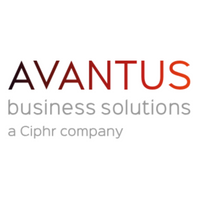How to help employees avoid financial misinformation
Bad financial advice – from crypto quick wins to influencer-led stock tips – can leave staff anxious, disengaged and vulnerable. So, how can employers help staff cut through the noise and build real financial confidence?
The growing risk of financial misinformation
Social media has democratised financial information, but not all of it is reliable. Nearly half (40%) of UK investors now turn to social media, finfluencers or AI tools when making financial decisions, while more than 70% of Gen Z investors use social media as a key investment source.
Unregulated voices often promise fast wealth with little context or caution. Employees may withdraw savings early or avoid pension contributions altogether, undermining both their financial security and the employer’s investment in benefits.
Misinformation also fuels stress and scepticism which can result in disengagement and reduced participation in salary sacrifice schemes, low uptake of share plans, and avoidance of investment options entirely.
Why traditional financial education isn’t working
Financial literacy isn’t just about knowledge, it’s about confidence. If employees don’t trust the source, they won’t act.
Traditional workshops and jargon-heavy webinars can feel abstract and irrelevant, especially to younger workers. Meanwhile, social media delivers financial content that’s fast, visual and emotionally charged. A 90-minute pension seminar can’t compete with a viral video promising instant returns.
The challenge isn’t access to information - it’s trust and relevance. Employees want plain-language guidance that connects financial decisions to real life and recognises the emotional side of money: fear, aspiration and comparison.
To counter misinformation, employers must reimagine financial education as an ongoing, engaging experience - not a one-off compliance exercise.
1. Partner with credible, regulated experts
Work with FCA-regulated advisers, financial coaches or independent educators to deliver accurate, engaging content. Co-brand sessions with trusted providers to build credibility. Myth-busting clinics, Q&As and “ask me anything” sessions make complex topics approachable and judgement-free.
2. Make education relatable and stage-specific
Financial priorities evolve - so should education:
- Early career: budgeting, investment basics and auto-enrolment
- Mid-career: risk diversification and compound growth
- Pre-retirement: drawdown and tax efficiency
Bite-sized podcasts, infographics and short videos keep learning accessible across life stages.
3. Teach digital discernment
Help employees spot misinformation by asking three simple questions before acting on online advice:
- Check the source: Who’s giving the advice, and are they regulated?
- Check the regulator: Is the product or provider FCA-authorised?
- Check the motive: Is someone being paid to promote it?
This simple framework strengthens digital resilience and informed decision-making.
4. Embed learning in everyday culture
Move beyond one-off “financial wellbeing weeks.” Integrate micro-learning into onboarding, intranet updates and wellbeing apps.
Gamified tools and mobile-first content make participation easy. Examples include:
- Smart Saver Challenge: set small savings goals or boost pension contributions by 1%.
- Financial Quiz Weeks: short myth-busting quizzes on internal platforms.
- Budget Reset Days: mindful spending challenges framed as wellbeing, not austerity.
These initiatives normalise money conversations and make learning social, achievable and stigma-free.
5. Appoint peer champions
Appointing financial wellbeing ambassadors can bring this to life. Trained volunteers act as trusted connectors, hosting “lunch and learn” sessions, sharing tips on internal channels, and signposting colleagues to reliable tools.
Employees are often more willing to ask questions of a peer than HR. This peer-led model creates psychological safety and embeds financial wellbeing alongside mental and physical health support.
The business case: clarity equals confidence
Financial wellbeing is now central to employee experience. Informed, confident staff are more likely to engage with pensions, share plans and savings schemes, and less likely to be distracted by anxiety or misinformation.
For employers, effective education enhances the perceived value of benefits, boosting participation, satisfaction and retention. It’s also an act of corporate responsibility - as scams and finfluencers proliferate, organisations that foster financial literacy demonstrate care, credibility and leadership.
Empower your employees
Financial misinformation isn’t going away, if anything, it’s getting louder. But employers can offer clarity amid the chaos.
By investing in trusted education, relatable content and ongoing support, organisations can help employees make confident, informed decisions that benefit both their futures and the business.
In a world of endless noise, the most valuable thing an employer can offer may simply be the truth - explained well.
Supplied by REBA Associate Member, Avantus
Flexible Benefits & Technology specialist providing online, highly configurable platforms to Customers and Intermediaries worldwide.








